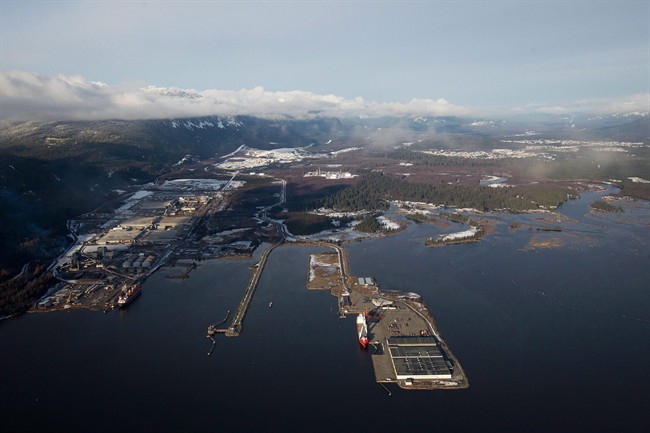VANCOUVER – Christy Clark has battled back from what many thought would be a losing bout to maintain her post as British Columbia premier.

Going into Tuesday’s election, the Liberals were trailing the NDP, under leader Adrian Dix, by eight percentage points — a much narrower race than 10 weeks earlier when she was lagging behind by 19 points.
Although she was appointed in 2009, she’s now the first woman elected as premier in B.C., a designation she shares with four other provincial and territorial leaders; in Newfoundland and Labrador, Nunavut, Quebec and Alberta.
BC Election results 2013: BC Liberals secure a majority government
Unlike other provincial elections, her majority win will have a huge effect on politics across the country – and nowhere more than in Alberta.
Alberta’s Alison Redford has already had one war of words with the premier over the construction of the Enbridge Northern Gateway pipeline.
Newly-elected Clark hadn’t entirely ruled out allowing the pipeline, which would carry diluted bitumen from Alberta’s oil sands across B.C. to the Pacific Coast and on to Asian markets.
Nor did she put her foot all the way down on the twinning of the Kinder Morgan pipeline – which extends to B.C.’s lower mainland from northern Alberta.
But, she wasn’t going to even consider the projects without Alberta agreeing to conditions she set forth at the premier’s meeting in Halifax last summer.
(See those conditions below)
There has been a bit of a cooling off period for the two premiers, but Clark hasn’t extended too much of an olive branch to her Alberta Progressive Conservative counterpart since last August, and especially not during the 28-day election campaign.
Clark ran on the platform of making the province debt-free in the next 15 years and to do so by turning the province’s focus on expanding its own resource wealth and by building a future in liquefied natural gas.
“… We don’t need the federal government and we don’t need Alberta,” she told the Globe & Mail on May 6, saying she was more interested in LNG than the 55,000 barrels a day of bitumen Northern Gateway would flow to the port in Kitimat.
Another winner in Tuesday’s election could be Eastern Canada, where pipeline hopes are riding high.
If Clark doesn’t want a pipeline, New Brunswick sure does.
Government officials from N.B., including Energy Minister Craig Leonard, were in Calgary on Election Day, pitching their region as the next hub for Alberta oil.
“We want to see a west-east pipeline constructed and have it come to Saint John,” said Leonard. “We want to see it filled with Alberta oil and refined at Canada’s largest oil refinery and shipped to world markets from our deep water port.”
Quebec Premier Pauline Marois is also onboard with the proposal – a possible win for that province as well.
Nothing is completely set in stone when it comes to the Northern Gateway pipeline, but it may have been had NDP leader Adrian Dix won.
Dix had given a firm no way to the proposed Enbridge project and flip-flopped entirely on the Kinder Morgan extension.
He previously said he wanted to wait and see what a federal environmental review of the proposed $5.4-billion expansion revealed. But at an Earth Day campaign stump he said the project would turn Metro Vancouver into “an oil tanker port,” and that was unacceptable.
His reversal may have been a factor in the election, and it may have a ripple effect – either to the West, with some chance of Northern Gateway going ahead, or to the East, where politicos and business magnates have Alberta oil dreams.
Christy Clark’s five conditions for heavy oil:
- Successful completion of the environmental review process. In the case of Enbridge, that would mean a recommendation by the National Energy Board Joint Review Panel that the project proceed
- World-leading marine oil spill response, prevention and recovery systems for B.C.’s coastline and ocean to manage and mitigate the risks and costs of heavy oil pipelines and shipments
- World-leading practices for land oil spill prevention response and recovery systems to manage and mitigate the risks and costs of heavy oil pipelines
- Legal requirements regarding Aboriginal and treaty rights addressed, and First nations are provided opportunities, information and resources necessary to participate and benefit from a heavy-oil project
- British Columbia receives a fair share of the fiscal and economic benefits of a proposed heavy oil project that reflects the level, degree and nature of the risk borne by the province, the environment and taxpayers. (Taken the official B.C. Liberal campaign platform)
*Ontario’s Kathleen Wynne was designated premier after Dalton McGuinty stepped down earlier this year.
– With files from The Canadian Press




Comments